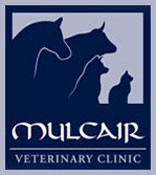In recent years huge advances have been made in veterinary medicine. Vets can now do things to improve the health and welfare of dogs which would have been unimaginable or impractical only a few years ago. Not surprisingly, these advanced surgical and medical treatments are often expensive so that a vet’s bill for intricate surgery or a prolonged course of treatment may be several hundreds of euros. Many pet owners worry that they will not be able to afford to pay for treatment if their dog becomes sick or has a major accident. This is where Pet Insurance might be of benefit to you. If you have any queries about Pet Insurance please Contact Us
Who takes out pet insurance?
During the past two decades an increasing number of pet owners have chosen to take out insurance to cover the cost of veterinary treatment. There are three different companies in the pet insurance market at present here in Ireland; petinsure.ie, 123.ie and Allianz. It is not just valuable pedigree animals that are insured. There are policies for ordinary cats and dogs, as well as horses.
What costs are covered by insurance?
One in every three dogs is likely to need major veterinary attention each year (in addition to the annual check ups and vaccination). The cover provided by different insurance policies varies according to the type of policy required and the cost of the premium. Typically, a policy will pay for the costs of veterinary treatment for illness or accident, as well as for third party liability and accidental damage caused by the animal.
A good insurance policy will reimburse the purchase price of your dog if it dies from illness or accident before a certain age and the costs of recovering the animal if it goes missing. Some policies even offer cover for holidays cancelled because your dog needs emergency surgery in the week before the scheduled departure date.
What costs are not covered by insurance?
As with all household and motor insurance policies there is likely to be a excess on the policy so you will pay a small proportion of any veterinary bills. Policies are not designed to cover day-to-day maintenance and routine health care. Treatment for diseases which were already present at the time that the animal was insured will be excluded from cover. Vaccinations, neutering costs and other routine preventive treatments are also exempt under most policies, as are the costs relating to an animal which becomes pregnant.
What should I look for in an insurance policy?
It is important to read insurance documents with care to make sure that the proposed policy is the one which will suit you and your dog.
Some policies have a time or cost limit for the treatment of each particular condition, so there is a danger that your dog will run out of insurance cover if it requires long-term treatment for a chronic problem.
Make sure that your dog will be covered for the whole of its life because your dog is more likely to need veterinary treatment as it gets older.
Consider the amount of time and effort that will be needed to make a claim. A good insurance company will process most claims within a week of receiving the documents from your vet.
How much will insurance cost?
The cost of insurance will obviously depend on the type of animal insured and the sort of cover that you require. The average premium will be from €150 – €200 a year. You may be able to get special discounts on your insurance if your dog is microchipped, you are a pensioner or have more than one animal insured. Pet insurance has become a competitive market so it pays to shop around. Nevertheless remember that the cheapest company is not always the best value for money.
Look carefully at the policy to see exactly what is covered by the insurance and be sure that it is what you need. Companies with cheaper policies may haggle over the cost of treatment or delay payment on genuine claims. Ask your vet about the claims settlement history of your preferred companies before you sign up.
Is it worth taking out dog health insurance?
There is no compulsion to take out pet insurance and it is for you to decide whether it is necessary. Cost may certainly be a factor, but the average premiums for veterinary health insurance policies have gone up far less than the equivalent policies for human health care (over the past few years).
For a relatively small annual cost, every dog owner who takes out insurance has peace of mind. If your dog has health insurance you know that everything will be done to restore them to full health and fitness if they become seriously ill or have an accident. If you are in any doubt it may help to ask a friend who has some experience of insuring their animals. Your vet or veterinary nurse will also be able to give you independent advice on the types of insurance available.

